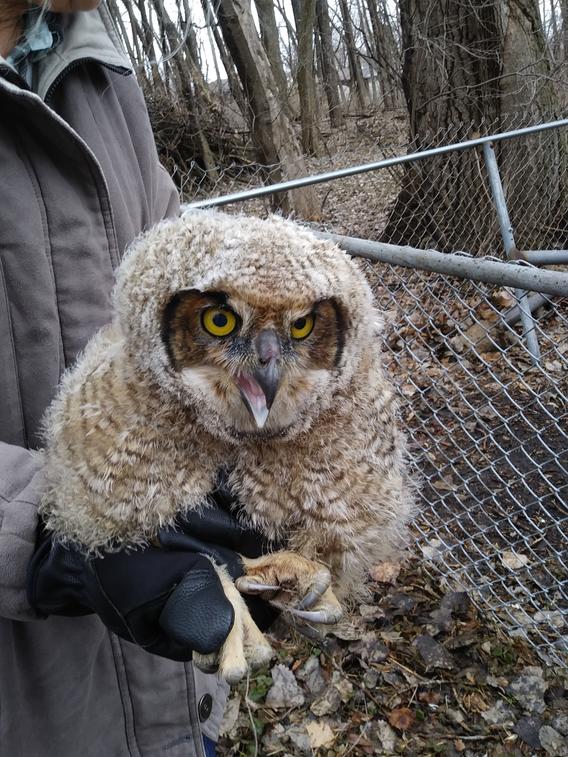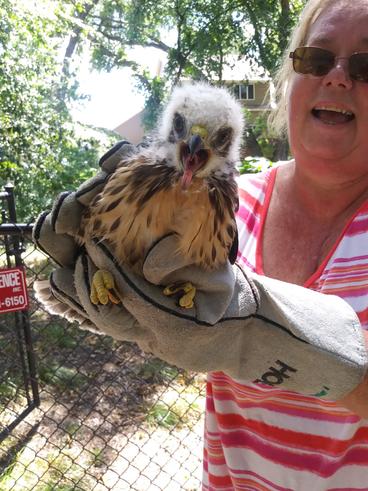
Volunteers at The Raptor Center (TRC) play an integral part in nearly every step of the raptor rehabilitation process, and baby season is no exception. While all TRC volunteers receive thorough training on best practices for working with raptors, “baby volunteers” receive even more extensive coaching to learn how to assess different situations and safely interact with youngsters.
Numerous factors are considered in determining whether a young raptor needs help, ranging from species to physical appearance to minute behavioral details. As the first TRC representatives on-site, baby volunteers must know not only the criteria to look for but also how to communicate that information to the clinic to discern what action is required. Some young raptors are best left alone, while others may only need help returning to their nest. If intervention is needed, baby volunteers must be especially cautious when handling these young patients and transporting them to TRC.
Young raptors are very impressionable and can easily become acclimated to humans if precautions are not taken. So, once they arrive at TRC’s hospital, their care is turned over to a limited number of clinic staff in order to reduce their exposure to humans.

During this time, baby volunteers are far from idle. When not actively assisting with the retrieval of birds in need, these volunteers help out behind the scenes by creating and repairing artificial nests for use in rehoming. When a young raptor has made a full recovery, TRC baby volunteers step up one last time to return it to nature, using either the original nest or an artificial nest they built that is suitable for that species.
An incredible amount of time and planning goes into preparing for baby season, and each year presents a new opportunity to further hone the process. With the help of phenomenal baby volunteers, TRC staff hopes 2023 will be another successful year for assisting young raptors.